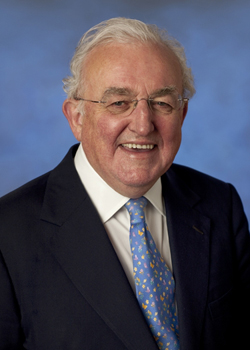

Extracts from a Speech by Lord Griffiths of Fforestfach at the Launch of the Centre for Enterprise, Markets and Ethics
Over recent years issues such as globalisation, the environment, climate change and global poverty have raised widespread ethical and moral concerns about the nature of twenty first century capitalism. These were brought into even sharper focus by the financial crisis which has raised serious ethical issues for many people regarding the way financial institutions do business and the culture of modern capitalist countries.
It is clear from the public debate which has taken place in the last few years that people’s concerns are not just about technical issues of economics and finance but extend to far wider questions of ethics, culture and even theology.
The mention of theology may be surprising. However not long ago the editor of The Economist published a book entitled God is Back. The papal encyclical Caritas in Veritate, which was a theological reflection by Pope Benedict XVI on globalisation and the financial crisis was widely reported and commented on in the secular press when it was published.
Similarly whenever the Archbishop of Canterbury or the Chief Rabbi have spoken on these issues in the last few years their views have been taken as a serious contribution to public debate.
After spending the whole of my career concerned with ethical issues of business and economics – whether teaching and doing research at the London School of Economics, as dean of The City University Business School, as a director of various public and private companies including the Bank of England or through engaging in debate in the House of Lords – I believe that there are three propositions around which many people could agree:
A competitive market economy which encourages private enterprise and is subject to the rule of law is not only the most effective way to generate wealth and employment but is also an important foundation for a democratic political order.
While a market economy is superior to other economic systems which have been tried, it is far from flawless. Financial stability, environmental sustainability and inequality in income and wealth are three critical challenges to the global economy in which we live. Free market economies left to themselves cannot be relied on to provide solutions to these problems. We need to have a better understanding of the human person and of what makes up the common good if we are to tackle them successfully.
If it is to work effectively a market economy requires a degree of trust based on high ethical standards by those engaged in business. These values will not be generated within the market but must come from outside of the market. While these values have many sources I believe that religion, and in my case the Christian faith with its Jewish heritage is one important source of such values.
I believe these issues need to be explored together by business people, economists and theologians. For these reasons our vision is to establish an international Centre which combines academic excellence, practical experience and a vocational orientation to explore the benefits of a market economy from the perspective of Judaeo – Christian teaching.
We are a company limited by guarantee and a registered charity based in Oxford, UK.